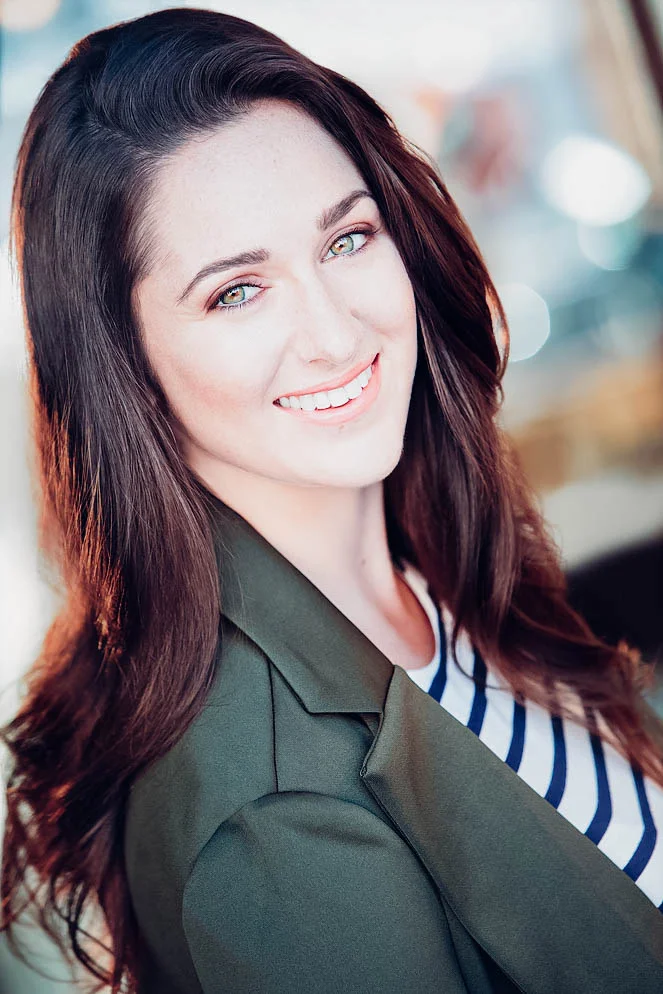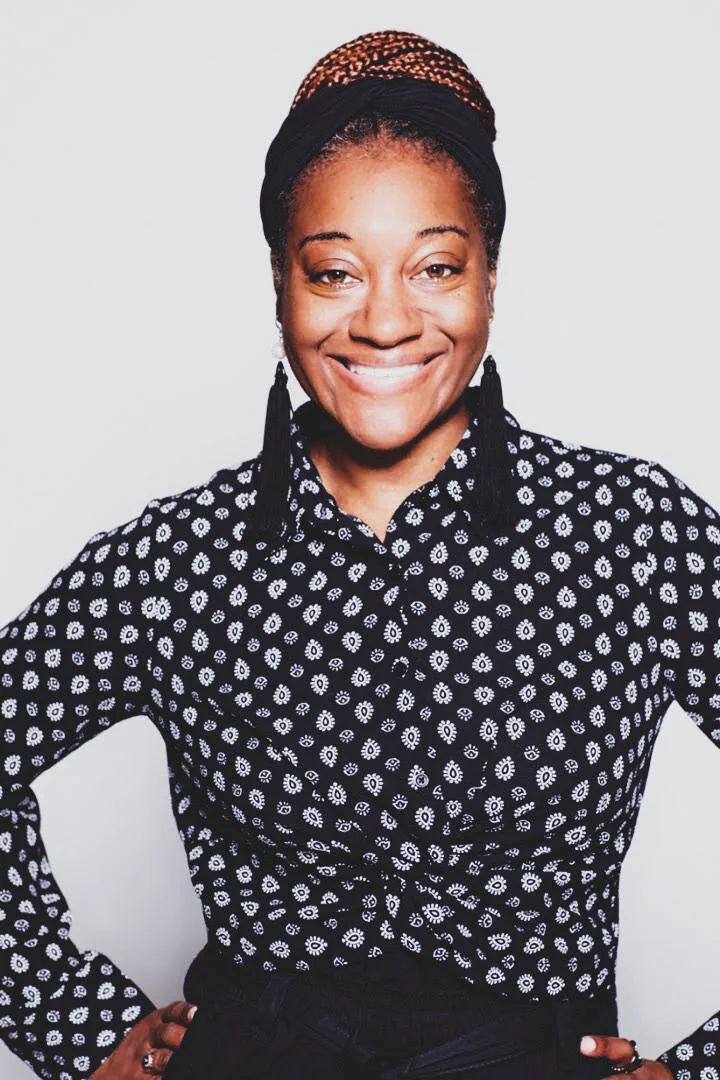From speech struggles to speaking her mind: Courtney Luckman, Speech Pathologist
Written by Courtney Luckman
It is a cold January afternoon and tears stream down my face. As I wipe them away, more fall. They become uncontrollable. I can barely see the road ahead of me as I drive home, don’t care. I wanted to die.
Five minutes before, I left my therapist’s office. After paying for my session, my therapist’s wife/secretary looked at me with sad, pitiful eyes and said, “I am so sorry that you have to live like this.”
When I arrived at my house, I ran into my mother’s arms and cried, “I can’t live like this anymore.” Holding her own tears in she said, “I know, sweetie. I know.”
Hello my name is….
Seconds pass that seem like hours.
Distressed.
Isolated.
Ashamed.
Embarrassed.
Misunderstood.
Trapped.
Unable to express the thoughts that so deeply make up who you are.
Lost opportunities.
Working twice as hard to master the same goal as everyone else.
Losing faith and telling yourself, "I can't live like this anymore."
Tears streaming down your face.
Waking up and realizing this "monster" isn't going away. It will be with you forever.
................Courtney, and I am a stutterer, along with the other silent one percent of the world.
The Beginning
Growing up, I knew I was different. I didn’t talk like everyone else. I didn’t know how or why it started, or why talking scared me. I never went a day without thinking about what I was going to say or how my words would come out. It never occurred to me that my challenge could be stuttering.
To this day, there is little media representation about stuttering. When stuttering is portrayed in the media the audience sees characters struggling with repetitions of a sound. According to the National Stuttering Association, stuttering is defined as “a communication system disorder involving disruptions, or ‘disfluencies,’ in a person’s speech. The word ‘stuttering’ can be used to refer either to the specific speech disfluencies that are commonly seen in people who stutter or to the overall communication difficulty that people who stutter may experience.”
When I was eight-years-old I tossed and turned in bed thinking, ‘Maybe if I close my eyes and think really hard I will wake up fluent. This will all be a nightmare.’
I never did.
My speech continued to haunt me. Although I never let anyone know my secret, it consumed my thoughts. As elementary school years progressed, communication became more and more important. What most children didn’t think twice about, terrified me.
I’m sitting in fifth grade science class and we are reading a chapter from our textbook aloud; each student reading a paragraph. I count the paragraphs to see which one will be mine. I find the paragraph I will soon have to read with my classmate’s listening. It’s a long paragraph, filled with words I know I will block on. My hands start to tremble and shake. My stomach tightens. I feel ill.
When the student next to me ends her paragraph, the classroom falls silent. I try to begin reading my paragraph, but the words are stuck in my throat. My vocal chords are frozen. All that is heard is the ticking of the clock’s painful seconds going by. I finally utter, “The...” and begin reading, but all I hear are the students’ murmurs and laughs. I continue, only to get stuck on a word again and again. This time I pretend I don’t know the word or that I lost my place in the paragraph. Anything to stop the laughter.
Later that day, a classmate asked me curiously, “Why do you always pause when you talk?” I answered with, “Umm, I don’t know.” My heart beat through my chest and tears swelled in my eyes. I didn’t understand why I was different.
Anxiety and Isolation
Starting middle school is hard for any kid, but for a person who can barely say her own name it’s terrifying. I had butterflies in my stomach like everyone else. However, while everyone was worrying about their outfits or if there would be cute guys at our new school, I was terrified about just getting through the first five minutes. There would be introductions. I wouldn’t be able to get my name out, and it consumed my thoughts the entire bus ride.
“How am I going to get through my Bat Mitzvah?” “How can I accomplish anything in my life if I can’t communicate?” I think about my recurring dream. The dream where I’m stuck on the steps, screaming to my family, but nothing comes out. They can’t hear me. I am warning them that I’m hurt, but they will never know.
Then, my mom took me to a see a speech therapist when I was 12-years-old after I finally told her how anxious I was to speak at my upcoming Bat Mitzvah. I answered questions, she took notes, and every time I looked over, I saw an anxious, confused expression on the speech pathologist’s face. She seemed to have no knowledge of the speech disorder that I had (which I later learned to be stuttering). She didn’t know how to help me.
Hope
I begin eleventh grade by taking an ‘F’ for a project that required an oral presentation. I was an A+ student.
I’m miserable — I don’t have the courage to tell my parents. What is a girl to do? She consults Google.
Slowly I type: not being able to get your
I couldn’t enter the last two words. It was as if by typing it I was admitting to myself I had a problem. Part of me wanted to know, but part of me didn’t. I’m 18. This issue should be gone by now.
But on I went and continued typing: words out.
What I found was hope.
A few years later, I attended the Successful Stuttering Management Program (SSMP), a three-week intensive therapy program for people who stutter.
“Rock bottom became the solid foundation on which I rebuilt my life.”
SSMP changed my life, but it was not easy. They called it stuttering boot camp. It unraveled 20 years of hiding my stuttering. I learned how to tell people that I stuttered. I learned how to stay in my long blocks. I developed courage.
I was finally free to do whatever I wanted. Stuttering did not have to hold me back.
From there, I found the National Stuttering Association. I started a local chapter and attended the national conference. I am now approaching my seventh conference. The stuttering community is my rock.
I used to work in primate research field (I once worked in the ape house at the Lincoln Park Zoo!), but years of involvement in the stuttering community inspired me to change careers. I am now a speech-language pathologist specializing in adults who stutter. I work with my mentor and good friend, Katie Gore, at a private practice in downtown Chicago.
I have been featured in international conferences, national podcasts, and the local news about my courage with stuttering. I make speeches regularly, and most recently guest lectured.
I finally found my voice, and every day I get to help others find theirs.
For more information about stuttering, please see my recent blog post, answering some FAQs.






